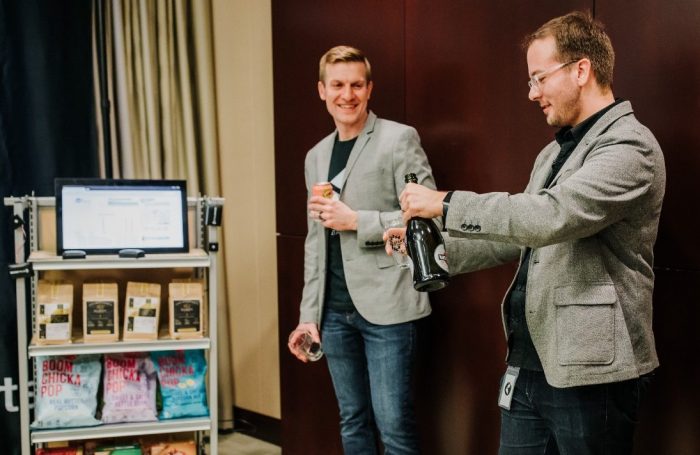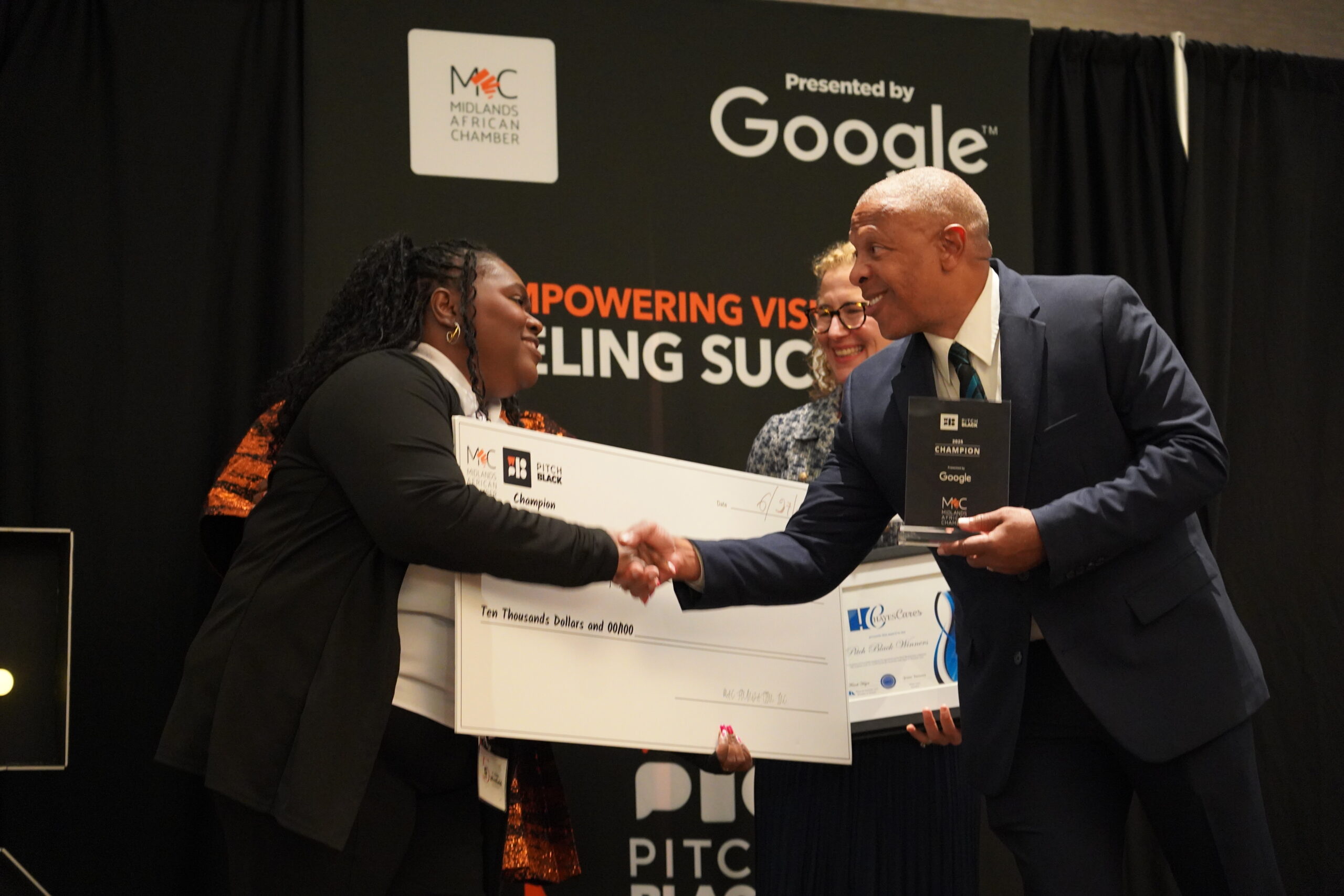Keith Fix, co-founder and CEO of Retail Aware, learned to code during a brief stay with his mother at a homeless shelter.
The 10-year-old aspiring entrepreneur’s parents had recently separated, and young Fix needed money for clothes and the after school programs he wanted to attend. A family friend needed a website built. Fix convinced his mother to drive him to the library where he checked out a book on HTML and CSS and taught himself enough about web development to land his first gig.
Ten years later, Fix ended up in the pages of Entrepreneur magazine.
“I’ve always been kind of a hustler,” he said.
Barely halfway through his tenure at the University of Nebraska at Omaha, Fix launched a daily group discount website for UNO students, and in 2012, he founded blabfeed, a digital signage platform for the waiting rooms of doctor’s offices, banks and other semi-public places, like convenience stores and deli counters, that he said netted him the kind of exit that potentiates an entrepreneur’s credibility to investors.
His experience at blabfeed informed Fix’s latest and most successful entrepreneurial effort to date: Retail Aware, which won a 2020 AIM Tech Award for Tech Startup of the Year last month.
Founded in 2018 by Fix and Andrew Diercks, Retail Aware provides real-time shelf analytics for brands and retailers through sensors that gather a suite of metrics to demystify what Fix called “the black hole at the shelf,” a problem he said he’d become increasingly obsessed with during his tenure at blabfeed.
“Real-time shopper data just didn’t exist at the shelf level,” he said. “Brands and retailers were really good at following the customer to the store—the shopper journey, we were really good at painting that picture to the store—and then post-transaction, because we’ve got the transactional data. But it’s this middle area here which, surprisingly, is the most important moment. We call it ‘the moment of truth,’ when you’re standing in front of that fridge and you pick up, you know, Miller versus Budweiser. That global data set didn’t exist.”
That was the white space that Retail Aware sought to fill at scale by developing what Fix calls “Business Intelligence as a Sensor,” a term the company stylized as BIaaS in homage to the Software as a Service (SaaS) and Infrastructure as a Service (IaaS) delivery models.
Despite huge ambitions and the leadership of a seasoned founder, Retail Aware began its life modestly.
“We’re very much an Omaha story because of the fact that we started with a frozen food company here,” he said.
A local wireless store soon signed on as a client and, along with the frozen food company, helped provide direction for Retail Aware. In fact, Fix credits the limitations imposed by Retail Aware’s earliest customers for forcing the company to innovate within a narrow but crucial space, which is what ultimately set it apart from previous solutions retail brands had tried in order to justify their in-store marketing spend.
“(Our early customers) said, ‘Number one: you can’t modify the product—we’re not putting RFID tags on frozen food,’ which is what everyone had previously wanted to do. ‘Number two: you can’t modify the shelf because those are pretty fixed and we don’t own them. And number three: it has to be cost-effective at scale.’”
The BIaaS platform Retail Aware developed has now been adopted by clients across the U.S. and around the globe, including Brazil, Singapore, Canada, Mexico, the U.K. and the EU. Sensors are supplied from China and then assembled at a factory in Fremont, Neb. The company has grown to 12 employees as orders pour in with no sign of slowing down.
“We’re going international faster than we had originally planned,” Fix said.
Ironically, as the in-store retail industry contracts during the COVID-19 pandemic, the effects of coronavirus have catalyzed Retail Aware’s global expansion. With public safety measures drastically limiting the number of shoppers per store, combined with customers’ desire to spend as little time as possible indoors, companies needed to know which metrics were the most accurate indicators of success as people adjusted their shopping habits.
“It was amazing for us because at the end of the day, the old playbook got thrown out the door, no one knew what was going on and they needed real-time data,” Fix said.
That demand led to a $1.1 million oversubscribed seed round for Retail Aware last summer. Spearheaded by Chicago-based New Stack Ventures, the round included additional participation from Network Ventures, Lofty Ventures and existing Retail Aware investors such as Invest Nebraska.
“We had a lot of momentum last year,” Fix said.
And so far in 2021, that momentum appears to be continuing. Fix said a prospect the company had been working to develop since last June finally resulted in a purchase order two days ago—the largest order in company history.
Not bad for a company that started out inside a few commercial refrigerators in Omaha two years ago. Though sounding cool and down-to-earth in his interview with SPN, Fix occasionally showed signs of utter amazement at Retail Aware’s recent success.
“Our aggregate data shows that 10 percent of the U.S. population has walked by a retail aware sensor in the last two years,” Fix said. “That’s insane to me.”




